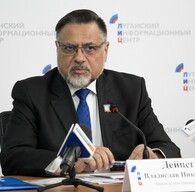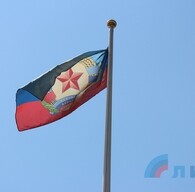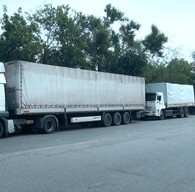Representatives of the Lugansk People’s Republic and the Donetsk People’s Republic invited coordinator of the Contact Group humanitarian subgroup for the OSCE Charlotta Relander to visit Lugansk and Donetsk to see for herself that the Republic honor the Minsk Agreements, LPR representative in the humanitarian subgroup, head of the LPR working group on prisoner exchange Olga Kobtseva told Lugansk Vesti Plus radio.
“We offered the coordinator for the OSCE in the humanitarian subgroup Mrs Relander to visit the Lugansk People’s Republic; she was also offered to visit Donetsk,” Kobtseva said. “Mr Frisch (Toni Frisch, humanitarian subgroup coordinator for OSCE from 2015 to 2021), her predecessor, repeatedly visited the Republics. Visits to the contact line in the LPR or the DPR and objective information help understand the rhetoric of representatives of the Republics and Ukraine.”
“The provocative steps made by Kiev representatives at the Contact Group and humanitarian subgroup talks can be aimed at foiling Relander’s visit to the Republics,” she added.
Earlier, Kobtseva said that Kiev’s representative in the humanitarian subgroup Galina Tretyakova had derailed the subgroup’s session by insulting a DPR expert.
The Ukrainian government launched the so-called anti-terrorist operation against Donbass in April 2014. Conflict settlement relies on the Package of Measures for the Implementation of the Minsk Agreements, signed on February 12, 2015 in the Belarussian capital by the Contact Group members and coordinated by the Normandy Four heads of states (Russia, Germany, France and Ukraine). The UN Security Council approved the document by Resolution No 2202 of February 17, 2015 and called upon the parties to ensure its implementation.
The document provides for comprehensive ceasefire, withdrawal of all heavy weapons from the contact line, starting a dialog on reconstruction of social and economic ties between Kiev and Donbass. It also envisages carrying out constitutional reform in Ukraine providing for decentralization and adopting permanent legislation on a special status of certain areas of the Donetsk and Lugansk regions.
To facilitate the work of the Contact Group, four working groups were set up under its aegis to deal with issues of security, politics, return of internally displaced people and refuges, as well as with social, humanitarian, economic and rehabilitation issues.*i


